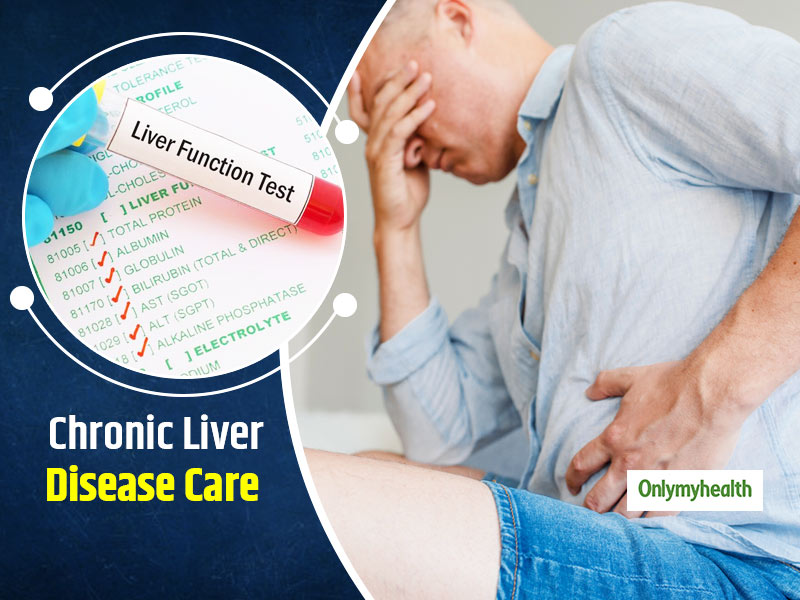
The liver, which is the largest gland in our body, performs the essential task of filtering the blood coming from the digestive tract. It regulates the level of chemicals in blood and excretes a product called bile which helps indigestion. Since the liver is a complex organ, it experiences a range of problems, the consequences of some of which can be fatal or dangerous. Liver diseases can primarily be classified into two types- acute and chronic. Acute liver failure indicates the loss of liver function rapidly over a few days or weeks while chronic liver disease develops gradually over a while.
Recently, a study undertaken by the Hepatology International stated that about 43% of those who were in the advanced stages of liver disease with cirrhosis or scarring due to the ailments, succumbed to COVID-19.
Also Read: World Hepatitis Day 2020: Know From Doctor, How Can Viral Hepatitis Be Eradicated
According to the World Health Organisation, liver disease rates across the globe are steadily increasing over the years. Chronic liver disease happens when the liver is gradually destructed. The most common types include cirrhosis of the liver, hepatocellular carcinoma (a common type of liver cancer) and chronic hepatitis B and C. Listed below are the common chronic liver diseases and the ways to manage/ treat them:
Chronic Hepatitis B
Chronic hepatitis B happens because of the hepatitis B virus. It occurs when the virus sustains in the body for over six months due to the immune system’s inability to fight the infection. The virus can be passed on through blood, semen or other body fluids via transmission or injection. Patients with chronic hepatitis B do not manifest specific symptoms, but some warning signs include fatigue, loss of appetite, fever, dark urine, joint pain, jaundice, nausea and vomiting. The disease can be treated through drug therapy to prevent further damage. Antiviral medication and interferon injections are also used to treat the condition. In extreme cases, a liver transplant would be the only solution to manage the situation.
Chronic Hepatitis C
In this case, inflammation of the liver is caused due to the hepatitis C virus, which when left unidentified and untreated can lead to a lifelong infection. This is because most people are unable to diagnose the disease in the acute stage. The virus primarily spreads through the blood from an infected person through transmission or injection. The common symptoms include fatigue, muscle ache, loss of appetite, itchy skin, dark coloured urine and jaundice. Chronic hepatitis C could be treated with the help of antiviral agents for preventing further infection and leading to viral clearance.

Liver Cirrhosis
Cirrhosis occurs when the scar tissue replaces healthy liver tissue, hindering the normal functioning of the liver. This leads to damage which builds up over time. Cirrhosis happens due to hepatitis, alcohol abuse and non-alcoholic fatty liver disease. The symptoms vary depending on the severity of the condition and comprise jaundice, vomiting blood, fluid build-up in the stomach, weight loss, itchy skin, swelling in ankle, feet and legs. Since cirrhosis is a progressive disease, the damage to the liver can sometimes reverse or improve if the trigger is gone, such as discontinuing alcohol consumption or if the virus is treated in time. The management of this disease can be done through medication and preventive measures such as avoiding the use of alcohol, consuming a healthy diet and maintaining body weight. In advanced cases of cirrhosis, when the liver ceases to function, a liver transplant may be the only treatment option. If detected in time, Ayurveda can also help in treating liver cirrhosis.
Also Read: Fatty Liver Disease: What Is Fatty Liver Disease, Symptoms, Types And Diagnosis
Hepatocellular Carcinoma
Hepatocellular carcinoma is a common type of liver cancer. It occurs most often in people with cirrhosis caused by hepatitis B or C infection. The other risk factors include heavy alcohol consumption, obesity, diabetes and excessive iron storage in the liver or other organs. It develops in the predominant liver cells and can spread from the liver to other parts of the body. Hepatocellular carcinoma can be treated by surgery, liver transplant, destroying cancer cells with chemotherapy or radiation therapy, targeted drug therapy or immunotherapy.

Hence, it is even more critical in the times of the current pandemic to manage your liver health and exercise caution to avoid fatalities.
With inputs from Dr Arvinder Singh Soin, Chairman, Institute of Liver Transplantation and Regenerative Medicine, Medanta
Read more articles on Other Diseases
How we keep this article up to date:
We work with experts and keep a close eye on the latest in health and wellness. Whenever there is a new research or helpful information, we update our articles with accurate and useful advice.
Current Version